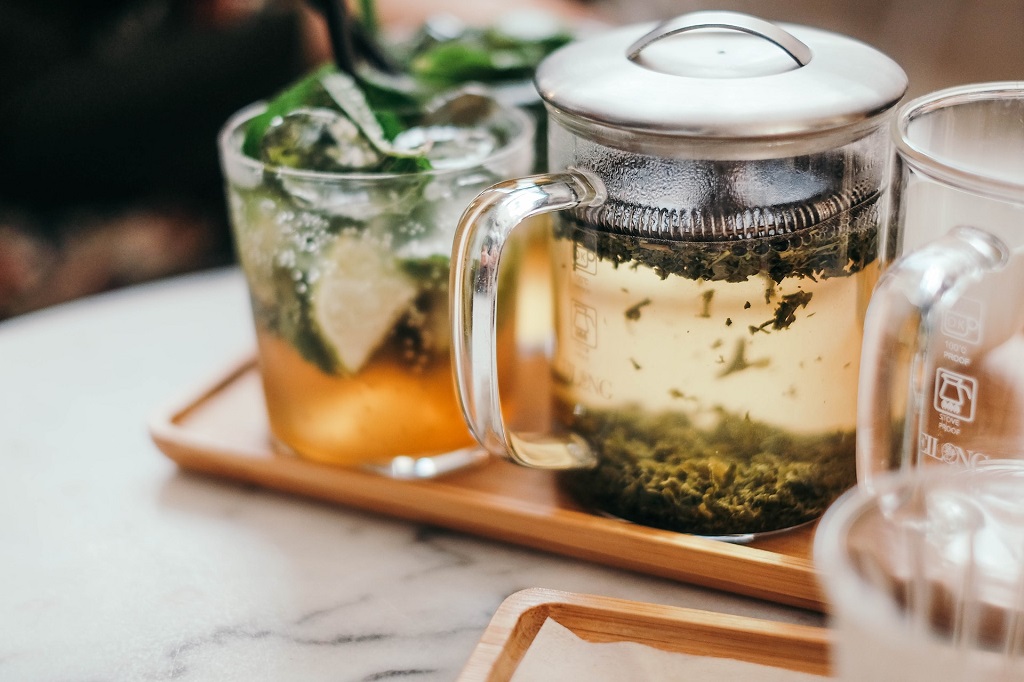4 Dietary Tips To Reduce & Avoid Bloating
Bloating is one of the most common dietary problems we face every day. It can vary depending on severe your symptoms are. For some of us, bloating is a slightly nagging feeling where our stomach is distended and we can feel a bit gassy. For others, it can be more painful and lead to stomach cramps.
Either way, it helps to reduce and avoid bloating as much as you can. It'll make you feel more comfortable, and you won't be as self-conscious when you're out and about. Thankfully, no crazy changes need to be made to avoid bloating – just follow these four dietary tips:
Get more probiotics in your gut
For most people, bloating is caused by digestive issues. Your body isn't producing the proper amount of digestive enzymes or good bacteria, so it struggles to break food down. This can also be due to the types of foods you eat – but more on that in a moment.
To counter this and aid digestion, get more probiotics in your gut. Yoghurts are a great source of probiotic bacteria, or you could take a supplement. Two of the most popular options are MicroVita and Neuralli. Both will offer probiotics, but it's worth doing a MicroVita Neuralli comparison to see how the two stack up, and which one is better for your gut.
Eat slower
Sometimes, fast eating is the source of bloating. This is because the body takes a while to register what you're putting in it. Your stomach and internal digestive system have to break down the food with each mouthful. If you eat too quickly, you run the risk of eating too much food and feeling overly full. Before your body can send signals telling you to stop eating, you've consumed too much.
Slow down and savour every bite. Apparently, experts say you should chew 32 times before swallowing most things. That might be a bit excessive, but it shows you how slow you should be eating. Take your time, chew your food, allow your body to digest at a normal rate and you will avoid bloating. You also avoid overeating, so you're not constantly consuming extra calories for no reason.
Eat low-FODMAP foods
FODMAP stands for fermentable fermentable oligosaccharides, disaccharides, monosaccharides, and polyols. In simple terms, it refers to foods that are difficult to digest and may ferment in your stomach, creating gas and causing bloating.
A low-FODMAP diet will involve eating foods that don't do this. Some of the biggest culprits are things like onions, garlic, leeks, legumes, wheat, and so on. It's worth looking into this diet and trying it out to see if things improve. Or, slowly remove certain things from your diet and see if there are changes. For instance, some people will stop eating onions (or cut back on them) and notice an immediate difference in bloating. It's all about playing around and seeing what type of diet works for you.
Drink peppermint tea
Have you ever wondered why a lot of anti-bloating medication tastes minty? It's not to give it a nice taste; it's because peppermint is great for the gut. It helps to relax the intestinal muscles and ease the digestive process along. This is perfect when you're bloated as it basically helps your gut relax and release some of the excess gas that's built up inside.
Instead of taking medication, you can receive natural relief through peppermint tea. You can either make this from scratch by picking peppermint leaves and steeping them or buy some tea online/from your nearest grocery store. Get into the habit of having a cup of peppermint tea after big meals. Sit there after the meal sipping on the tea, slowly letting your body trundle through the digestion process. Ginger tea can also be beneficial, particularly if you're having stomach pain or feel nauseous as a result of bloating.
All in all, eating slower, drinking peppermint tea and providing your gut with more probiotics will help ease the symptoms of bloating. They also help stop you from bloating in the future, but the third point is one you should focus on. Identify what causes bloating for you – is it a particular food type? Loads of people get bloated after eating lots of dairy products. Cut down on this and introduce a low-FODMAP diet and you will see changes. If you keep eating stuff that obviously makes you bloat, you'll never prevent it and will spend all your life trying to calm the symptoms.
Bloating is a common problem, but it doesn't need to be a hard one to fix!
839GYLCCC1992





Leave a Reply